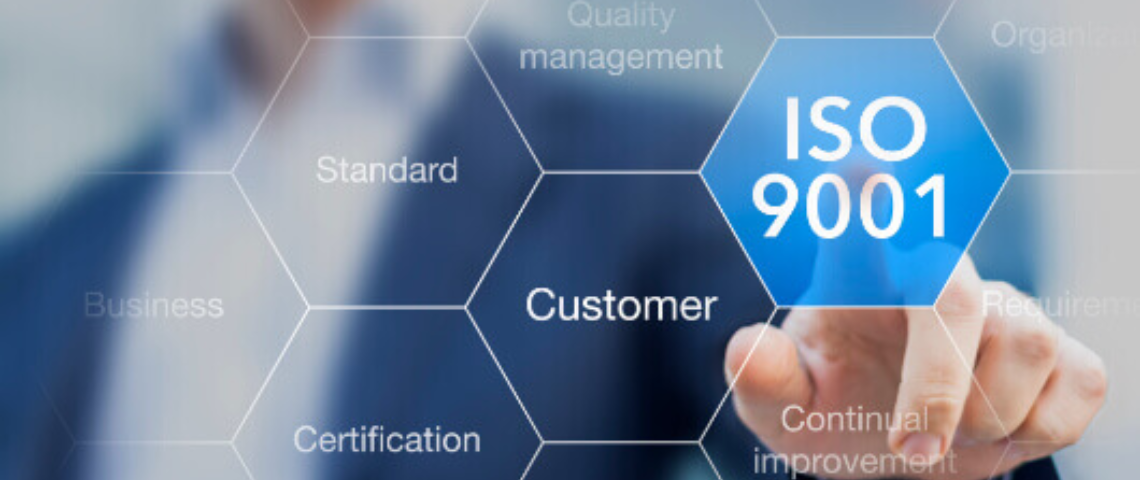Navigating the ISO 9001:2015 Journey: A Guide for Small-Scale Industries in India

Introduction:
In the competitive landscape of today's business world, quality management systems play a pivotal role in ensuring customer satisfaction, continuous improvement, and overall organizational success. One such internationally recognized standard is ISO 9001:2015. While implementing ISO 9001:2015 can be a transformative journey for any organization, it often presents unique challenges for small-scale industries in India. In this blog, we delve into the common hurdles faced by these enterprises and explore effective strategies to overcome them.
Understanding ISO 9001:2015:
ISO 9001:2015 is a globally recognized standard that sets out the criteria for a quality management system (QMS). It emphasizes a process approach and requires organizations to demonstrate their ability to consistently provide products and services that meet customer and regulatory requirements.
Challenges Faced by Small-Scale Industries in India:
-
Limited Resources:
Small-scale industries often operate with constrained resources, including finances, manpower, and infrastructure. Implementing ISO 9001:2015 requires investment in terms of time, money, and personnel, which can be daunting for these enterprises. -
Lack of Awareness and Expertise:
Many small-scale industries in India may not have sufficient awareness or expertise regarding ISO standards and quality management systems. This lack of knowledge can hinder the implementation process and lead to misconceptions about the standard's requirements. -
Resistance to Change:
Implementing ISO 9001:2015 often entails significant changes in organizational processes, culture, and mindset. Resistance to change, particularly in traditional or family-owned businesses, can pose a significant challenge. -
Documentation Burden:
The documentation requirements of ISO 9001:2015 can be overwhelming for small-scale industries with limited administrative capacity. Maintaining comprehensive documentation while ensuring its accuracy and relevance can be a major hurdle. -
Integration with Existing Processes:
Small-scale industries may already have established processes and systems in place, which may not align seamlessly with the requirements of ISO 9001:2015. Integrating the standard's principles into existing practices without disrupting day-to-day operations can be a complex task
Strategies to Overcome Implementation Challenges:
-
Leadership Commitment:
Strong leadership commitment is essential for driving the ISO 9001:2015 implementation process. Leaders must communicate the importance of quality management and actively support initiatives aimed at achieving certification. -
Tailored Training and Education:
Providing targeted training and education sessions can enhance employees' understanding of ISO 9001:2015 requirements and their role in the implementation process. This can help mitigate resistance to change and foster a culture of quality consciousness. -
Simplified Documentation Processes:
Streamlining documentation processes and adopting digital tools can help alleviate the burden of documentation for small-scale industries. Templates, standardized forms, and automation software can simplify the creation, storage, and retrieval of quality records. -
CGradual Implementation Approach:
Instead of attempting to implement ISO 9001:2015 all at once, small-scale industries can adopt a phased approach. Breaking down the implementation process into manageable stages allows for better resource allocation and facilitates gradual adaptation to the standard's requirements. -
External Assistance and Collaboration:
Seeking guidance from external consultants or partnering with industry associations can provide small-scale industries with valuable insights and support throughout the ISO 9001:2015 implementation journey. Collaboration with other organizations undergoing similar processes can also offer mutual learning and encouragement.
Conclusion
While the path to ISO 9001:2015 certification may present numerous challenges for small-scale industries in India, overcoming these obstacles is achievable with strategic planning, commitment, and perseverance. By addressing common implementation challenges head-on and leveraging tailored strategies, small-scale enterprises can enhance their competitiveness, drive continuous improvement, and unlock new opportunities for growth in the global marketplace.

Yogesh Pawar
Author
Yogesh Pawar is the Founder & CTO of TechnoSysCon, boasting over 20 years of expertise in ISO Integrated Management Systems, Laboratory Accreditation Training, and Certification. As a member of ACCAB and a Panel Auditor with Certification bodies, his core competency lies in guiding organizations across various sectors including Automotive, Chemical, Pharmaceutical, Education and more. Read More